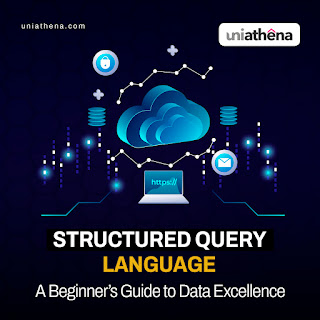Elevate Your Data Skills with SQL: A Beginner’s Path to Success
Imagine running a business with no clue which products are selling the most or having a customer list with no knowledge of buying behavior. Without organized data, organizations risk making blind decisions, which can lead to lost earnings. That is where SQL comes into play. It provides professionals with the ability to sort, analyse, and extract data efficiently. So, if you are looking for an SQL Course With Certificate, now is the ideal time to learn this skill and be competitive in the data-driven economy.
What is SQL?
In simple terms, SQL (Structured Query Language) is the language we use while handling databases. Think of a database as a giant, highly organized filing cabinet with a huge quantity of information on different types. SQL is the language with which you can find a specific file, update it, add new files, or maybe reorganize the cabinet itself. It is the language for data, regardless of which database program you're using.
So, what makes SQL so important? Well, in the data-driven world of today, the ability to extract valuable information from raw data is critical. Whether you're analyzing sales trends to boost earnings, understanding customer behavior to create better products, or monitoring inventory to improve efficiency, SQL empowers you to make data-driven decisions supported by solid facts.
Understanding NoSQL: The Alternative to SQL Databases
While SQL has been ruling data management for so long, a new approach, known as NoSQL, came along to answer the call of today's big data. NoSQL, or Not Only SQL, is a term for a group of database technologies used to interact with unstructured or semi-structured data that cannot be easily adjusted in the relational tables of traditional databases.
Key Distinctions Between SQL and NoSQL
Database Structure: SQL databases follow a relational structure with data split into tables with columns and rows. While different architectures are followed by NoSQL databases, including document, key-value, and graph, each suited for specific data types and applications.
Database Schema and Query Languages: SQL databases maintain a strict schema in which data must stick to a predefined structure. SQL language is utilized for querying, which offers an extensive range of data manipulation and analytical functions. Dynamic or schema-less designs are characteristic of the NoSQL databases, which can support more versatile data storage.
Database Scaling: SQL databases scale vertically by increasing the resources (memory, CPU, storage) of one server. NoSQL databases scale horizontally by distributing data between many servers in a group. Horizontal scaling provides greater capacity than vertical scaling, hence making NoSQL databases a reason to fit for big and dynamically changing data sets.
Data Structure: SQL databases store data in tabular structures with columns and rows. This is helpful while performing multiple data transformations. The data structures supported by the NoSQL databases vary, including document to key-value pairs, graphs, and column families.
Use Cases: SQL databases are suited for applications with strict consistency and complex data relationships, such as financial systems, e-commerce websites, and CRM systems. NoSQL databases are suited for applications with high performance, flexibility, and scalability with unstructured or semi-structured data, such as social media websites, IoT and applications.
Getting Started With UniAthena’s SQL Beginner Course
This SQL Certification Course with Certificate provides you with the foundational concepts, including fields and records, right up to the essential principles of RDBMS and DBMS. The course combines theory with hands-on application so that you can confidently use SQL to work with databases and effectively use various SQL elements for data handling and manipulation. Further, the basic concepts such as SQL constraints, aggregate functions, and various types of Joins, allow you to relate and work with data in meaningful ways.
Best of all? The course is delivered in a clear, concise, and to-the-point manner that lets you learn at your own speed and complete it in just 1-2 weeks of learning. And upon completion, you'll have the chance to earn a Blockchain-verified certification, which gives your SQL abilities an added credibility for future employers. Are you prepared to take your career to the next level with the power of data? Enroll for this SQL Course with Certificate and be a data-driven decision-maker.



Comments
Post a Comment